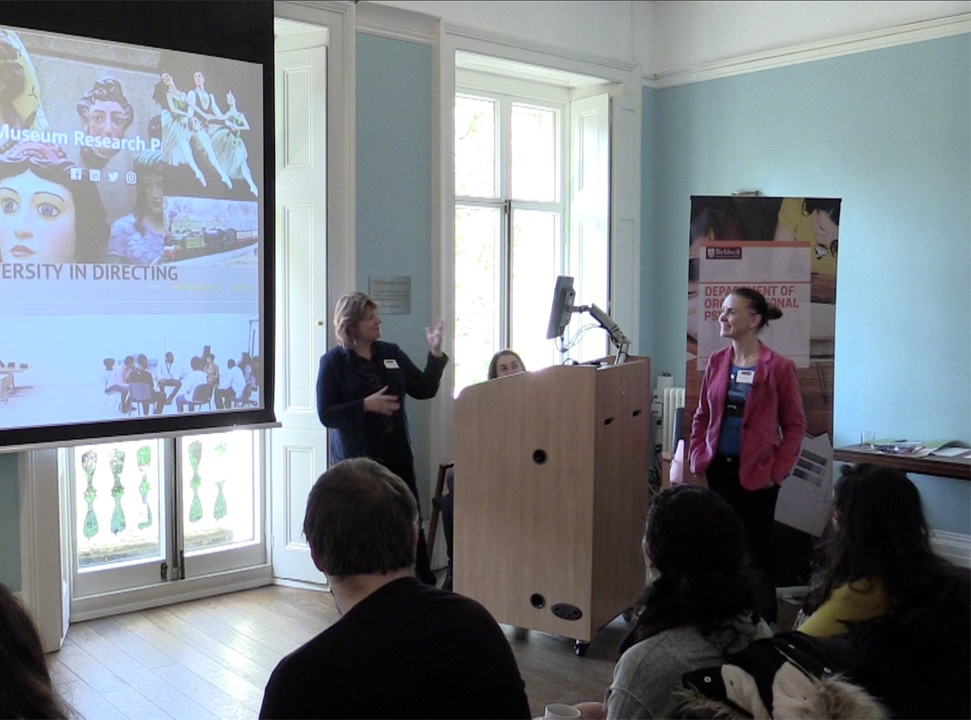40 years ago, going to university was unusual. Only 8.4% of school leavers went on to get a degree in 1970 compared to just over 50% now, and many older people today may feel they missed out on a major opportunity to explore a subject they’re passionate about and to develop a range of academic skills.
Undertaking degree level studies for the first time is a popular option for retirees with time on their hands and a willingness to learn. Not is it an excellent way to keep occupied after exiting the workforce and to explore areas of interest that may not have been available in the past; older students can also qualify for the same government loans as their younger peers, in most cases without the expectation that they will later exceed the annual £25,000 income threshold necessary to pay them back.
Known for its flexible, part-time and evening study, Birkbeck is an appealing choice for London’s mature learners where this year, 9% of students were 51 or older (1,026 out of 11,871), and 2% were 61 or older (291 out of 11,871). The College offers a range of workshops tailored to those who want to go to university later in life, to help them with study skills after a long time away from the books, and to offer support in using technological resources such as digital journal archives.
While a common view of a university student may be of a bright-eyed, bushy-tailed 18-year-old embarking on their studies after completing their A-levels, Birkbeck’s 2019 graduates prove there’s not just one way to do a degree.

John Alexander, BA History of Art, aged 68:
“My wife and I have spent our whole lives visiting galleries and I’ve long thought I’d like to learn more about the art we’ve always loved looking at.
“I researched the huge number of options available to me in London to study art, and quickly decided History of Art at Birkbeck would be the best as they have a great reputation, flexible hours and were happy to take me! I knew if I only went to the odd lecture at, say, a museum, I’d enjoy it but not retain the information. I need the discipline of having to write an essay or sit an exam (which was daunting at first after some 45 years) in order to force myself to focus and learn the material. It involved many hours sitting alone at my desk or visiting galleries, none of which I could have done without the patient and enthusiastic support of my wife. She said she will proudly add my graduation photo to those of our children hanging in her study.
“I’ve thoroughly enjoyed my studies at Birkbeck and have been in awe of the many inspiring students of all ages I’ve come across. This was my first degree, and I was worried that I might not have sufficient grey cells left to learn but I’ve found it stimulating and enlightening. The only problem is that it now takes me much longer to go around galleries as I see so much more in the works of art than I used to! My wife has also enjoyed learning more, almost by osmosis, alongside me! It has certainly kept my grey cells active and I would highly recommend study to anyone of any age who wants to learn more about any subject. It’s challenging, but it’s fun!”

Diana Hills, Grad Cert History of Art, aged 72:
“I decided to do a graduate certificate in History of Art because I like working towards something rather than just going along to talks for interest. I’ve always been interested in art history and the course was an opportunity to try my hand at academic writing and learn more about aspects of art and architecture I didn’t know much about.
“To me it’s never too late to learn, and perhaps older people get more enjoyment in learning new skills. As we move more and more into a knowledge based age, it’s important that people of all ages have the basics so that they can cope and at least know how to access information. Education doesn’t just need to be academic – just the ability to communicate and appreciate the variety of opportunities modern life has to offer.
“The first assignments are always tough. Everyone has their own way of coping – you have to try, get the feedback and with time you do get better. Some of my family and friends said ‘I don’t know why you’re bothering’ and urged me to give up when I got stuck on an assignment. A number of people, including my grandchildren were a bit puzzled as to why I wanted to go back to school but they soon got used to me making notes, even if they couldn’t understand why I wouldn’t use a laptop!
“To study and get a qualification is a privilege for people of any age, and while undoubtedly you may go through a bit of a rough patch, the sense of achievement when you finish, whatever your mark or grade, is second to none.”



